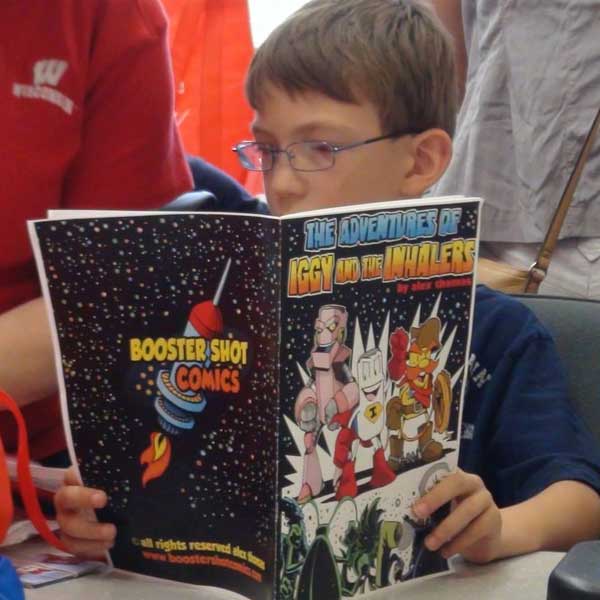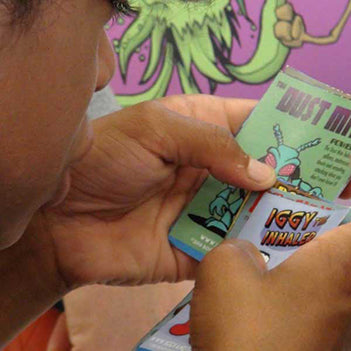Research
To develop an effective educational tool, we have tested Iggy and The Inhalers with many children over the years. And we continue to work on testing the materials in real clinical settings in comparison to standard-of-care asthma education that pediatric patients are currently receiving. We also solicit feedback from doctors and nurses using these tools with their own patients in efforts to further improve our program and make it the most useful tool for patients, parents and health care providers.
In 2015, researchers at the University of Wisconsin- Madison evaluated Iggy and The Inhaler by implementing the education program in the Dane County Public school system and evaluating knowledge improvement immediately after intervention as well as knowledge retention one month later. The results are planned for publication in 2016.


Focus Group Testing
During the development of "Iggy and the Inhalers," we conducted focus group testing with real kids with asthma to see what they would like to see in an asthma education program. We shared early drafts of "Iggy and the Inhalers" with 30 children at 2 Asthma and Allergy Clinics in Chicago (1 suburban location, 1 urban location). Based on their feedback, we made adjustments to the characters, visuals, and text, insuring that kids could understand the basic concepts of asthma pathophysiology, medication mechanism of action as well as making sure our materials were also still fun and engaging for kids!
Asthma Camp Testing
Since 2011, "Iggy and the Inhalers" has been implemented and informally tested every summer at the Madison Asthma Camp at the University of Wisconsin-Madison. At the 2013 Madison Asthma Camp, we conducted an asthma knowledge pre-test and post-test. There were 55 children (ages 8-15, mostly 10-13) from a high asthma risk group and a predominantly minority population. Kids took an asthma knowledge pretest at the start of camp. The kids then had 30 minutes to read the comic and view cards over lunch. Then, they watched the full video series and had small group discussions with an allergy fellow and a school nurse. At the end of camp, they took an asthma knowledge post test.
You can read more about our research in this SlideShare presentation from the Comics and Medicine conference held at Johns Hopkins University.
